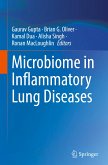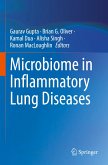In this study, the effect of autophagy inhibition on apoptotic response in NSCLCs U1810 cells under nutrient deprivation conditions was assessed. Thus, under these conditions an induction of apoptosis was observed that was dependent on caspase-8. Mitochondria outer membrane permeabilization and caspase-9 activation were detected downstream of caspase-8 activity, which was also essential for the reduction of long-term clonogenic survival of autophagy-deficient cells. The supplementation of glutamine was able to reverse this effect and prevent cell death of NSCLCs, while downregulation of cFLIP levels had an effect on stimulation of caspase-8 activation. Caspase-8 was observed to accumulate within aggregates containing p62, where it may be activated, suggesting a novel intrinsic apoptotic signalling. Further studies on autophagy-deficient cells are needed in order to reveal novel potential targets for efficient elimination of cancer cells.
Hinweis: Dieser Artikel kann nur an eine deutsche Lieferadresse ausgeliefert werden.
Hinweis: Dieser Artikel kann nur an eine deutsche Lieferadresse ausgeliefert werden.








